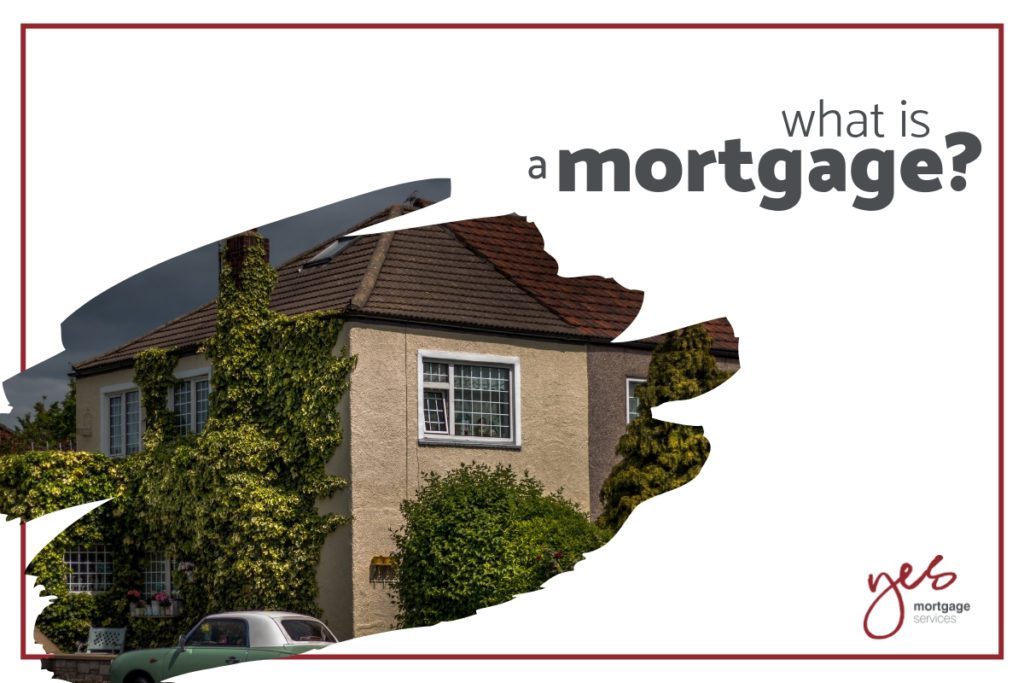A mortgage, also called a mortgage loan, is the money you borrow from a lender towards the cost of a house or flat.
The security for the loan is the property itself. This means that if you do not keep up your mortgage repayments, the lender may decide to get their money back by repossessing your home and selling it. For this reason, taking on a mortgage is probably the biggest financial commitment you will ever make.
The best way to get the right mortgage for you is to educate yourself as much as possible and to work with a trusted broker like YES Mortgage Services. We’ve put together this overview of the mortgage market to help you understand the process and have a stress-free experience of taking out a mortgage.
Your deposit
The first step towards getting a mortgage is to start to save a deposit for your house. Most lenders will want to see that you’ve already saved 5-20% of the property’s value, so work out how much you can afford and how much you’ll need to buy the right property, then calculate how much you’ll need to save.
The amount of money you borrow and the interest rate the lender will offer you depends on how much you have been able to raise yourself as a deposit. With that in mind, it’s a good idea to save for as large a deposit as you can afford.
Your mortgage application
Once you’ve raised your deposit and seen the home you want to buy, it’s time to apply for a mortgage. Your mortgage application is the point at which lenders decide whether or not you can afford to borrow money and keep up with the repayments. Lenders usually want to know about:
Your income, including your pension, investments and any financial support you receive (e.g. child benefit).
Your other financial commitments (e.g. paying off an overdraft, household bills, how many children you have)
Potential lifestyle changes (e.g. having a baby, taking redundancy, going back into education) – will you be able to afford your mortgage repayments if your circumstances change?
The lender will need to see evidence of your income and outgoings. Evidence of your income will include payslips and your tax forms (usually your P60). Evidence of your expenses will include details of any financial arrangements (e.g. car payments, paying off your student loan, pension contributions). You’ll also need to show household bills, council tax bills, insurance paperwork and any invoices for childcare.
Different mortgages for different purposes
As well as residential mortgages (mortgages used to buy homes), other types of mortgages are available to cover the rental market, and to enable you to release part of the value of your house to meet other financial commitments.
Buy to Let mortgages
Buy to Let mortgages are exclusively for landlords and people planning to become landlords. The lender’s decision to offer a buy to let mortgage is usually based on the expected rental income from the property, but lenders sometimes ask to see details of other income and outgoings.
Let to Buy mortgages
These mortgages provide funds to enable you to buy a new home while your old home is rented out.
Self-build mortgages
Recent changes to self-build mortgages mean that people planning to build their own homes can now benefit from funds being released prior to the start of each stage. Customers can borrow up to 95 per cent of the land costs and up to 95 per cent of the construction costs.
Re-mortgaging
In the right circumstances, re-mortgaging can allow you to save money on your repayments. By changing mortgage lender, you might benefit from more competitive rates than may have been available when you first took out your mortgage. It is also a way of borrowing money against the value of your house, possibly to fund large-scale home improvements or pay off other debts.
Types of mortgages
Your mortgage advisor will help you find the most suitable type of mortgage for your circumstances. Some allow you to repay the same amount every month while others vary according to other factors. Some allow you to change lender part way through while others penalise you for doing so. Common types of mortgage include:
Variable rate: Your monthly payment changes in line with a Standard Variable Rate (SVR) of interest, set by the lender. You won’t usually be penalised if you decide to change lenders and you may be able to overpay when you can afford to, without incurring a penalty.
Tracker rate: Your repayments track according to an agreed base rate (usually the Bank of England Base Rate). This means that when the base rate is low, your repayments are low. It is important to consider whether you’ll still be able to afford them when the base rate rises.
Discounted rate: Your lender will offer you a discounted rate for an initial period at the beginning of your mortgage, after which you will be moved onto your lender’s standard variable rate. It is important to check that you will be able to afford the increased repayments when the discount period is over.
Fixed rate: A good option if you need to budget. The repayments are the same every month for a fixed period, so you are protected against rising rates. The downside is that you don’t enjoy the benefits of lower rates. Many fixed rate borrowers are transferred to a variable rate after the initial fixed rate period is over.
Mortgages can seem very complicated but in essence, they are simply a business arrangement between you and a lender to enable you to buy your own house. At YES Mortgage Services, we have the knowledge and experience to make the mortgage process as straightforward and stress-free as possible. To find out how we can help you find the right mortgage for you, call us today on 0800 612 5596 to book your no-obligation consultation.

At Yes Mortgage Services, we offer a comprehensive range of products from across the market.
Irrespective of whether you are looking to buy a new home, re-mortgage an existing property, or looking to protect your family from the unpredictability that life throws at it or protect your income if you are unable to work due to accident or ill health.
Yes Mortgage Services are committed to offering you the highest possible standards of service. We can undertake the whole process from answering the initial questions through to handling multiple product applications. Ensuring that everyone gets treated with the same urgency and maintaining your best interests are our main goals irrespective of the value of the mortgage.
We recognise that both we and our customers have everything to gain if we look after your best interests and treat you fairly in all aspect of our dealings with you.




